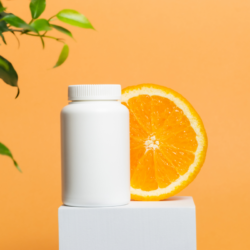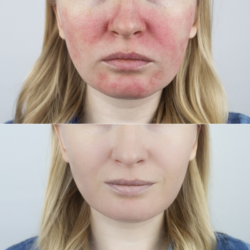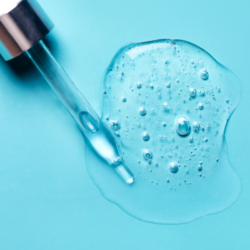If you are interested in cosmetics, you will have heard of vitamin C as a valuable skin care ingredient. Indeed, this famous vitamin is considered one of the best anti-ageing ingredients on the market! It is the key to a flawless, youthful complexion. Although our daily diet is rich in vitamin C, it is not certain that this vitamin takes the road that leads to our epidermis. In fact, it is much better to use skin care products enriched with vitamin C in parallel. This is the best way to enjoy all its benefits for the skin!
Can vitamin C limit the damage caused by the sun?
Overexposure to UV rays inevitably leads to lower levels of vitamin C in the core of the epidermis. These levels are also lower in older skin or skin showing signs of photoaging. Free radicals, generated by UV rays, are responsible for premature skin ageing. It is therefore thanks to its richness in antioxidants that vitamin C helps to slow down the damage caused by free radicals.
Can it make my dark circles disappear?
Serums containing vitamin C increase the hydration of the skin around the eyes, thus smoothing the fine lines that form crow’s feet. A youthful glow guaranteed! According to a 2009 study, vitamin C in the form of 10 percentsodium ascorbate improved dark circles after 6 months of regular use. This was due to a thickening of the skin around the eyes.
How can I boost collagen production?
Collagen is the most abundant protein in the body. However, its production decreases with time and it becomes imperative to consume food supplements based on collagen peptides to support the whole body in the face of the aging process. Indeed, a drop in collagen inevitably leads to a loss of skin elasticity and the appearance of fine lines. No need to panic! Vitamin C is known to boost collagen production. What’s more, it cannot be produced without vitamin C!
Does vitamin C lighten the skin?
Vitamin Creduces the intensity of spots and improves the skin texture by smoothing the surface. Thanks to its various actions, vitamin C restores radiance to even the dullest of complexions. A real youth cure for your skin! Melanin is a substance present in the body. It is responsible for the pigmentation of the eyes, hair and skin. A study conducted in 2017 showed that the topical use of vitamin C slows down the production of melanin. This makes it a good choice for people suffering from brown spots, residual spots or pregnancy masks.
Is vitamin C moisturising?
According to a study conducted in 2017, vitamin C is present in high concentrations in the majority of healthy epidermis and organs. It would seem that this vitamin accumulates in the body from the bloodstream. It should be noted that vitamin C is best absorbed when given in the form ofascorbic acid. Another study from 2013 found that vitamin C had a real moisturising effect on the skin. In fact, the vitamin derivative used limited transepidermal water loss, thus improving skin barrier function.
How do I use a vitamin C serum?
Although vitamin C is generally well tolerated, it is best to be cautious about the first applications. We always advise you to start with a test application, for example in the elbow crease, in order to eliminate any risk of a reaction in the skin of the face. Here’s how to do it:
- Place a small amount of product in the crease of the elbow and wait 24 hours.
- If there are no side effects, you can apply the product to your face. Stop using the product if you develop a rash, redness or hives.
- When it is time for a full application, refer to the manufacturer’s instructions.
The vitamin C serum can be applied once a day. After cleansing your skin, apply your vitamin C treatment, moisturise your skin and remember to use sun protection! This is essential in addition to the use of vitamin C. Source: Sources: https://www.mdpi.com/2072-6643/9/8/866/htm
https://www.mdpi.com/2072-6643/9/8/866/htm
https://www.ncbi.nlm.nih.gov/pmc/articles/PMC5579659/ https://www.ncbi.nlm.nih.gov/pmc/articles/PMC7802860/ https://pubmed.ncbi.nlm.nih.gov/19626722/ https://pubmed.ncbi.nlm.nih.gov/16029672/ https://pubmed.ncbi.nlm.nih.gov/22406231/





